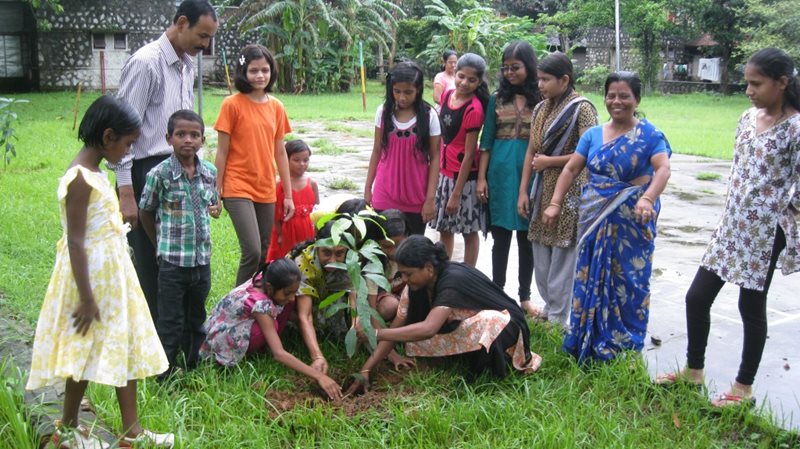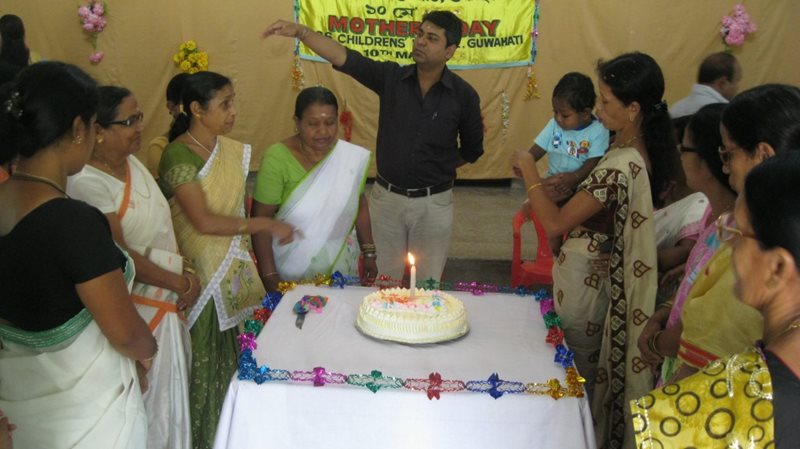Women and children at risk of being exploited

Children and SOS mothers plant a tree together (photo: SOS archives).
In spite of the growth in the service and manufacturing sector, unemployment and poverty remain a problem. The state of Assam is amongst the poorest in India, and according to some estimates poverty has actually increased in recent years. People living in rural areas of Assam often struggle to make ends meet, and many migrate to Guwahati in search of a better life. This has led to unplanned urbanisation all across the city – according to some estimates over ten per cent of the population lives in slum areas.
Women and children are the first to suffer the consequences of the high unemployment and poverty levels and political unrest. Gender inequality continues to be an issue. For example, the average literacy rate in the city is 78 per cent, but there are big differences between male literacy rates – at 81 per cent – and female literacy at 74 per cent. Although among the poorest, children of both sexes are often taken out of school so that they can contribute to the family income, it is still common for girls to leave school earlier than boys.
Human trafficking is also a problem in the area, as people fall for the false promises of traffickers. Women and girls are particularly vulnerable to abuse due to their weak position in society. They often end up working as prostitutes or under exploitative conditions as domestic workers.
SOS Children's Villages works closely with local agencies
Guwahati was the third location in Assam where we started working. We cooperate very closely with other agencies and community-based organisations in order to identify families who are in need and then provide them with the support they require to improve their lives.
What we do in Guwahati

Celebrating Mother's Day. SOS mothers play a key role in providing children with a sense of belonging (photo: SOS archives).
When children can no longer stay with their families, they can find a loving home with one of the 16 SOS families, where they grow up with their sisters and brothers. When needed, the SOS Kindergarten can also provide day care for young children. Older ones attend the local schools thus making friends with children from neighbouring families and integrating into the community.
When the young adults are ready to leave their SOS families they can join our SOS Youth Programme. With the support of qualified professionals they are guided through this new stage of their lives, as they start vocational training courses, attend higher education and look for work. The young people are encouraged to develop perspectives for their future, learn to shoulder responsibility and increasingly make their own decisions.